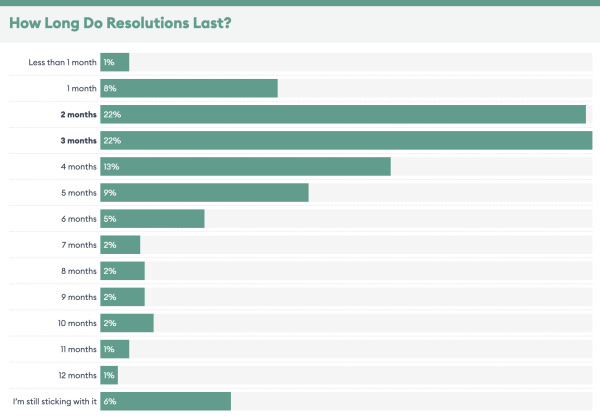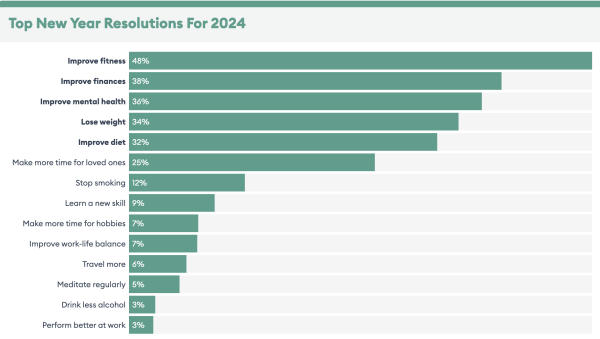You’re with family and friends, carefully watching the clock tick by. 11:58, 11:59, 11:59:26, 11:59:59, 12:00. HAPPY NEW YEAR! It’s probably around this time when you start thinking about what you can change in the year to come, whether it’s mental health, fitness, or academics. You tell yourself, “New year, new me! 2024 is going to be a great year!” But have you ever honestly asked yourself if your New Year’s resolution was achievable?
Let’s start with why people set New Year’s resolutions in the first place. “Most people have a desire to improve their wellbeing,” said Behaviorist Mr. Joseph Kearney, M.A., CLC, Scripps Clinic Center for Weight Management, “and creating a resolution identifies desires and expectations for improvement, creating an internal energy to achieve those goals.” According to Forbes, people also make resolutions for themselves because a resolution is inherently an optimistic and hopeful way to start a new year.
However, many people lose sight of their resolution in a couple weeks. “In general, only one in three people will stick to their plan in one to three months,” said Mr. Kearney. To emphasize this, according to a study conducted by the University of Scranton, 23% of people give up on their resolutions after only one week. Most people will give up before the year ends.
According to Forbes, there have been unofficial dates commemorating people failing with their resolutions. January 17 is known as “Ditch New Year’s Resolutions Day” and the second Friday every January is called “Quitter’s Day”.

Based on the Forbes Health/OnePoll survey, the top resolutions set this year were to improve fitness, to improve finances, to improve mental health, to lose weight, and to improve diet.

Celeste Oder (‘26) narrowed her health resolution to drinking more water. She said, “I set this because I’ve been struggling to drink enough water, and I wanted to get healthier and feel better.”
She has a plan to help her achieve this goal. “I’ve figured out how much water I need to drink before and after school if I drink my entire water bottle at school,” she said. However, Celeste encounters challenges. “It’s hard to stick to it sometimes because I’m forgetful,” she said, “I’ve missed a few days, but I just refresh the goal for the next day.”
Unlike the people who were aiming for better health, students are less confident about their academics.
“I felt that I got grades that didn’t actually reflect the effort I put into my classes,” said Lela Felix (‘26) when reflecting on why she set her resolution, “and so I’m hoping to work harder so that I really feel like I deserve the grades I get.”
Lela is also prepared and has set a plan to help her achieve this goal. She is confident she will stick to this resolution for at least half of the year. “I’m planning to stick to this resolution by keeping myself accountable and really prioritizing my time,” she said, “I think getting rid of distractions, going to more office hours this semester, and focusing more in class will also help.”
Lela finds that she “procrastinates a lot” and hangs out with her friends after school instead of going to office hours. She hopes that her plan will help her overcome these challenges.
In general, most people fail to stay with their resolution within the first to fourth week, as Mr. Kearney stated. Usually, the reason why most people fail is because they set unrealistic goals, have a lack of discipline, feel discouraged after a setback, lack time management skills, and lack support. “Their goals may seem achievable at first, but they may have set the bar too high and the ‘cost to maintain commitment’ is difficult,” said Mr. Kearney. Additionally, he said, “Success comes from consistent effort and focus, rather than inspiration and temporary bursts of motivation.”








